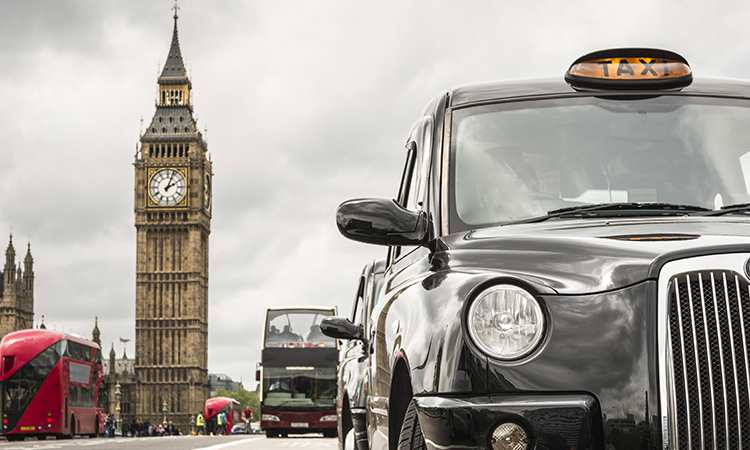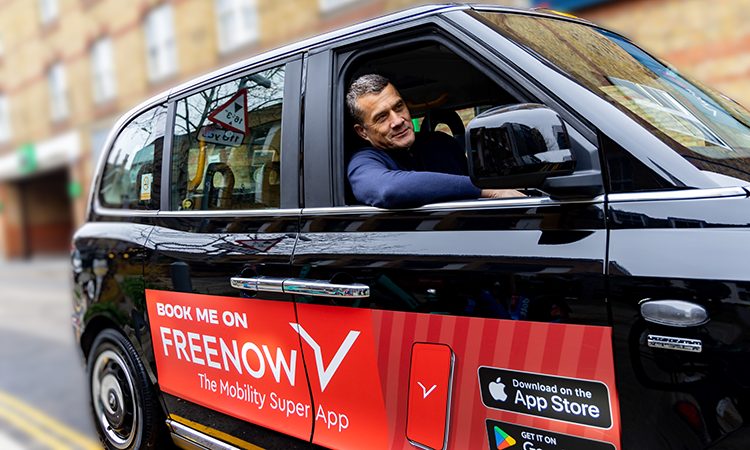The road to EV success needs government support for cabbies
- Like
- Digg
- Del
- Tumblr
- VKontakte
- Buffer
- Love This
- Odnoklassniki
- Meneame
- Blogger
- Amazon
- Yahoo Mail
- Gmail
- AOL
- Newsvine
- HackerNews
- Evernote
- MySpace
- Mail.ru
- Viadeo
- Line
- Comments
- Yummly
- SMS
- Viber
- Telegram
- Subscribe
- Skype
- Facebook Messenger
- Kakao
- LiveJournal
- Yammer
- Edgar
- Fintel
- Mix
- Instapaper
- Copy Link
Posted: 2 May 2023 | Mariusz Zabrocki - FREENOW | No comments yet
The UK needs more measures and support to transition to electric vehicles, says Mariusz Zabrocki, UK General Manager at FREENOW, as he discusses the barriers to entry – such as cost and access to charging infrastructure – which must be addressed, particularly for the taxi and private hire vehicle sector.


The UK is on its journey to an electric vehicle (EV) transition. But this can only be achieved with the right measures and support in place. The omission of EV considerations in the Chancellor’s Spring Budget are disappointing to say the least, but highlight that more needs to be done to support this growing shift.
We need to recognise the barriers to EV entry and address them. Ultimately, uptake needs to be more accessible and affordable”
The increase in shared urban mobility – taxi, minicabs or private hire vehicles (PHVs), eScooters, eBikes – as people opt out of having driving licences and even owning cars, and instead choose more sustainable travel, proves the sector’s role in the UK’s EV journey.
But we need to recognise the barriers to EV entry and address them. Ultimately, uptake needs to be more accessible and affordable, particularly for our taxi and minicab sector, where drivers are potentially at risk from a cost-of-doing-business crisis.
Attitudes are changing, but barriers remain
The wider public’s appetite for migrating to EVs is growing. The Department for Transport (DfT)’s latest National Travel Attitudes Study revealed that, while only 4% of respondents currently own a plug-in EV or hybrid, over half (57%) say that they’re likely or very likely to opt for an ultra-low-emission car in the future.
But, when asked what puts people off the idea of EV ownership, four in five told the DfT that they are too expensive to buy, and three in five said a lack of public charging points.
These barriers go beyond affecting the public; they directly impact taxi and private-hire vehicle drivers in their line of work.
Addressing infrastructure and affordability
Easy access to rapid charging continues to be one of the main challenges for drivers, particularly in London. The UK needs investment in ultra-rapid public charging points on busy roads suitable for cabs, businesses and emergency services. This becomes even more pressing for London drivers, who will need to adapt to the coming expansion of the Ultra Low Emission Zone (ULEZ).
In London and across the UK, more government money is needed to support the right infrastructure, to enable the ride-hailing sector to continue to operate and grow as it becomes more sustainable.
In London and across the UK, more government money is needed to support the right infrastructure, to enable the ride-hailing sector to continue to operate and grow as it becomes more sustainable”
The recent news of the UK Government’s additional £56 million investment to expand EV charging across the UK is a move welcomed by industry and the public.
But expanding our charging infrastructure is just one factor. The government also needs to address affordability challenges, to support all drivers as they shift to zero-emission vehicles.
Anyone using a charging point in a public place – a car park, petrol station or on-street parking space – is subject to VAT at the standard rate. This is four times the reduced rate that applies to home charging, which counts as fuel and power for domestic use. Taxi and minicab drivers are at an immediate disadvantage.


Credit: FREENOW
The majority of minicab drivers in London also don’t have off-street parking and have to rely on on-street charging facilities, meaning that they are financially penalised for not having their own driveways.
The Transport Select Committee in July 2021 highlighted these discrepancies. The sector can’t afford further delays. The Treasury should explore the viability of introducing a VAT levelling playing field to support all drivers with on-street charging and in line with home charging.
The government also needs to address affordability challenges, to support all drivers as they shift to zero-emission vehicles”
Beyond more accessible charging, taxi and PHV drivers need specific financial support to ensure that there is no upfront cost barrier to operating EVs.
In 2022, FREE NOW surveyed minicab drivers about their attitudes towards the shift to EVs. Thirty five per cent of those considering the transition to EV named the high cost of an EV as the biggest stumbling block. For most drivers, it’s more cost-efficient to buy their own vehicle, rather than lease it. However, with interest rates at a high, it will be prohibitive for many.
When it comes to black cabs, the situation is even more challenging. For example, a new electric black cab can cost £90,000. Unlike the broader market, where sale prices will become more competitive, there is a limited supply of appropriate vehicles for taxi drivers. It is highly unlikely that prices will fall enough for taxi EVs, if at all.
Drivers need financial support to overcome this, and the government should continue to make the Plug-In Taxi Grant available to taxi drivers. From the drivers we surveyed, half of those with EVs said that the support of government and city grants were a key factor in helping them to switch.
For minicab drivers, it is disappointing that a similarly targeted grant is unavailable. Following the withdrawal of the general plug-in grant in 2022, they now receive no equivalent support, so this needs to be addressed as part of wider support measures.
Time for the public and private sector to take action
EVs play a crucial role in how we push forward on the agenda for better urban environments.
We need greater public and private sector collaboration to ensure that investment is made where it’s required most – especially for our taxi and minicab driver community”
The government says that it is serious about the country achieving its 2030 EV commitments, yet their actions in 2023 have not reflected that.
If they are really serious about prioritising sustainability, we need greater public and private sector collaboration to ensure that investment is made where it’s required most – especially for our taxi and minicab driver community.
You will be joining us as a speaker at our upcoming event, Transport Innovation Summit, in September. What are you most looking forward to at the event, and why do you think it is important that the industry comes together and collaborates at an event like this?
I’m delighted to be joining the Transport Innovation Summit in September 2023. I look forward to discussing the role played by platforms such as FREENOW in developing and implementing Mobility-as-a-Service digital solutions that provide a more intuitive, user-friendly and frictionless experience for city dwellers.
This event is a great opportunity for the private and public sectors to collaborate and discuss ways to ensure that more people can rely on and take advantage of existing shared mobility options to move around our cities; ultimately creating better and healthier urban areas for all.


Mariusz has also successfully steered the company from record lows caused by the global pandemic, which severely affected the ride-hailing industry, to record highs. FREENOW’s UK business is outperforming pre-pandemic records and is currently the licenced taxi market leader in the UK and across Europe.
Related topics
Alternative Power, Infrastructure & Urban Planning, Mobility Services, Sustainable Urban Transport, Transport Governance & Policy
Related modes
Ride-sharing & Car-sharing, Taxi
Related cities
London
Related countries
United Kingdom
Related organisations
Department for Transport (DfT), FREE NOW, UK Government
Related people
Mariusz Zabrocki








